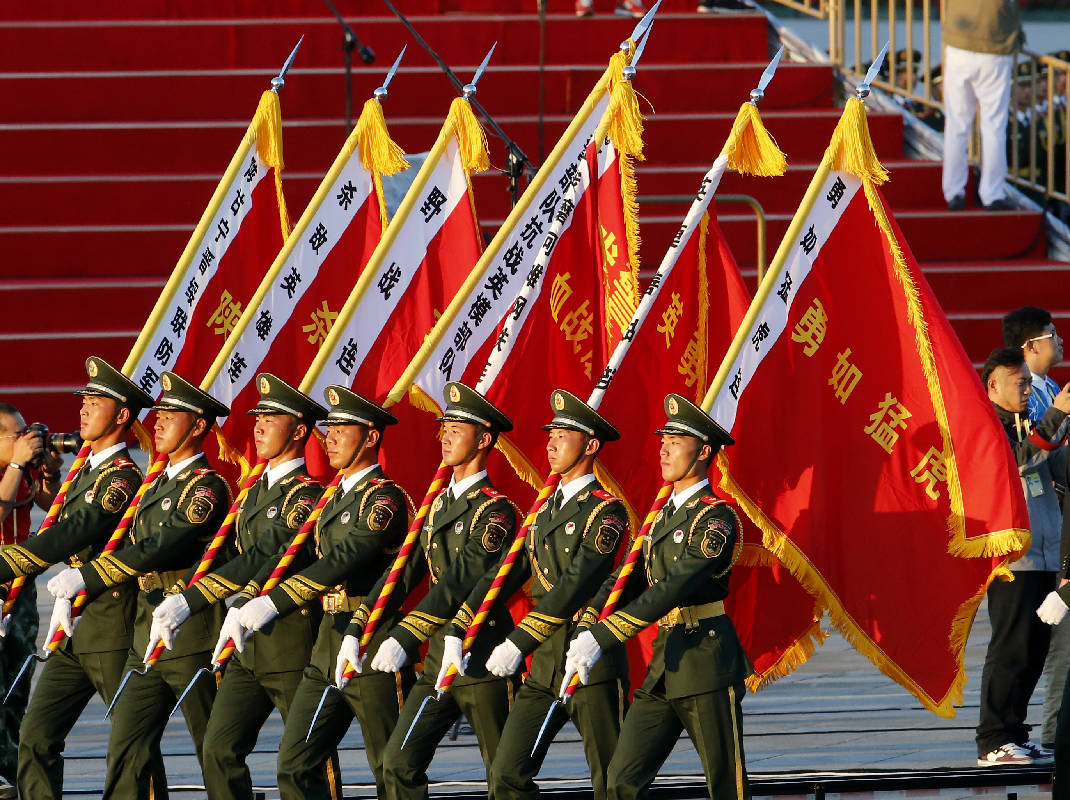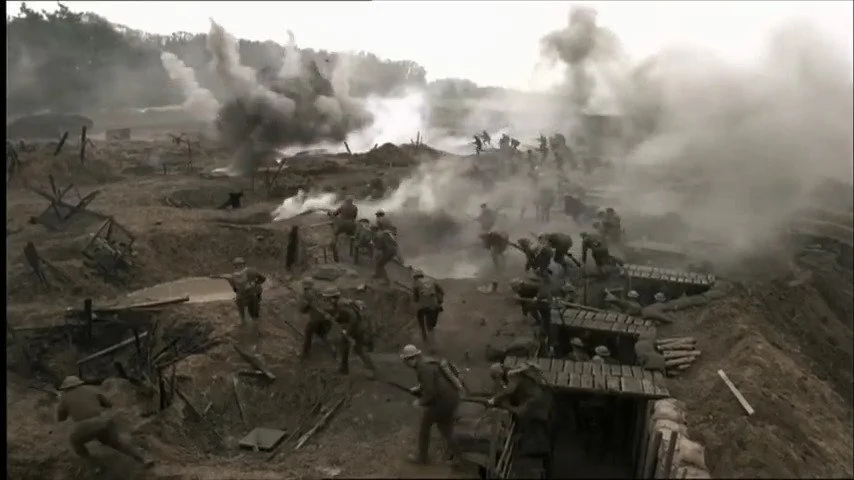The book is probably a cautionary tale as much as an object lesson for those engaged in a similar task, but in any case, Wadle offers a valuable, deeply researched, and multifaceted rendering of the navy’s relationship with the public during this period and a vivid descriptions of the problems it faced as it attempted to control its public image.
Multiple Perspectives on Warfare: #Reviewing The Fighters
The Fighter’s should be read, immediately reread, and then read again after a long introspection as readers will find it hauntingly illustrative of the installments in blood, innocence, tears, family heartache, and hardship, as well as time, peace of mind, and family harmony which will also be due in future conventional or in multi-domain conflicts.
#Reviewing No Better Friend, No Worse Enemy
Proser sets out at the beginning of the Trump administration to uncover the “qualities of character…[and] personal magnetism” that accounted for the acclaim then greeting the Mattis appointment, culminating in his confirmation by the Senate in a vote of 98 to 1. Despite obvious admiration, the author only partially succeeds. Examples that display martial virtues abound, but readers looking for insights into the personality or inner life of Jim Mattis will struggle not only with making political connections to recent events, but also with what might come next in his public life.
#Reviewing Cult of the Irrelevant
Overall, Cult of the Irrelevant is a timely, well-researched, and thought-provoking book that is a worthy read for anyone interested in how to reform academia, improve policymaking, or both. Readers may not agree with all of Desch’s arguments, but they will be inspired to think more deeply about these issues.
#Reviewing Small Boats and Daring Men
Armstrong’s greatest contribution is including irregular warfare, or guerre de razzia, as a legitimate strategy alongside guerre de course commerce destruction and guerre d’escadre fleet action. Irregular warfare is not portrayed only as an incidental strategy that came about as a last resort, but as an accepted form of naval strategy that is part of the more general concept of naval operations and establishes precedent for practicing that strategy in today’s conflicts.
#Reviewing Tank Warfare on the Eastern Front 1941-1942
For decades, popular history has perpetuated misunderstandings about the Eastern Front of the Second World War. Some of these, such as the endless hordes of the Soviet Army overwhelming the professional and competent Wehrmacht through sheer numbers, border on myth, if not outright fabrications. Other myths include the technical superiority of German war machines and the genius of certain commanders, Soviet and German. This myth busting is part and parcel of the motivation behind this book.
#Reviewing Victor in the Jungle
#Reviewing Kissinger on Kissinger
Kissinger on Kissinger is a thoughtful and insightful account of some of the most successful American diplomatic achievements of the 20th century, carried out by its most accomplished practitioner of diplomacy. The book provides an important look into Kissinger’s legacy, although it is only one part of the polytropos that is Henry Kissinger.
#Reviewing The Spy in Moscow Station
In the end, this episode was a true-life spy vs. spy story. Both the KGB and the U.S. intelligence community ended up spending a lot of time and money bugging and de-bugging, tying up valuable resources. And it is likely the KGB followed the NSA’s and CIA’s efforts since it had bugged the equipment. Readers interested in a detailed technological Cold War spy story pitting U.S. technical spy sleuths against Soviet spies hell-bent on installing listening devices in the U.S. Moscow Embassy, will profit from this book.
#Reviewing Why America Loses Wars
Fragments Through a Straw, Darkly: #Reviewing Drone
My initial reaction—if we can call two years of brooding initial —is exactly why we need more poetry about the experience of modern war. We need it for catharsis, communication, and reckoning. We need more poetry that forces us to wrestle in the cobwebs and the debris of the darkest corners of the attic. We need to reflect in the mirrors, be they clear, clouded, or cracked, that we find locked away in the trunk. Garcia gave me a key. Maybe it will work for you as well.
#Reviewing America in Afghanistan
Given the length of the conflict in that country, there is no shortage of literature covering America’s longest war. Yet, many works on the war in Afghanistan cover the accounts of military members and their tactical engagements. Sharifullah Dorani has written a short history of high-level U.S. policy making in Afghanistan. The book reviews the major decisions of the Bush, Obama, and Trump administrations. Dorani covers this well-tilled ground in an interesting, locally informed way and, unlike other works, brings it together in a single volume.
#Reviewing Road Warriors
Daniel Byman’s book is a timely piece on the history and evolution of foreign fighters’ role in jihad. Readers will walk away from this book with a better understanding of the severity of the threat of foreign fighters, as well as how the rise of the Islamic State was possible to begin with. Foreign fighter flow to jihadi conflicts is evidence of the way the modern, globalized world fans conflict beyond its regional nucleus.
#Reviewing: Military Virtues
#Reviewing The China Mission
The China Mission is an important book for those seeking to understand China or, more realistically, grasp the near-impossibility of understanding the complexities of China, in the past or present. Like other recent scholarship from the Council on Foreign Relations, The China Mission throws cold water on any China expert who makes definitive claims about China or the Chinese; China remains truly foreign to most Americans.
#Reviewing The Bridge to Airpower
What books stand out in the field of logistics? Ask any officer or senior enlisted leader who has graduated from a professional military education course and they can tell you two things: a book about strategy they liked and many they did not. Sun Tzu, Clausewitz, and even the much-maligned but desperately needed for his time Jomini, all fit the mold. Ask the same crowd to suggest the best book on military logistics and the answer is likely to be silence. Thus, in odd juxtaposition, logistics is so important in war that the most popular quotation about logistics is apocryphal and the vast majority of military leaders could not name one book on the subject.
#Reviewing To Master the Boundless Sea
Ultimately, Smith’s book will accommodate both scholars and seekers of American naval heritage. Its reception among historians proves this work as a major contribution to many fields and the broader understanding of the 19th century naval history that led to the American empire. One can appreciate the title To Master the Boundless Sea as an endless endeavor to challenge ourselves to strive and understand the immeasurable depths of the seas and the relationship between knowledge and the environment in which we live.
Don’t Say No One Warned You: #Reviewing China’s Vision of Victory
#Reviewing Never in Finer Company
The 308th was a draftee regiment, largely from New York City, the Meuse-Argonne Offensive. On October 2, 1918, due to a lack of experience on the part of both the regimental and divisional commanders, the 308th found itself surrounded by the Germans. The soldiers’ ability to hold out for six days behind enemy lines earned them the name “Lost Battalion” and was seen by many as an example of the American spirit.
From Platforms to Control: #Reviewing Thomas Rid’s Rise of the Machines for Its Macro-History of the U.S. Air Force
For those familiar with the traditional narrative of U.S. airpower history centered on the Air Corps Tactical School’s development of bomber doctrine followed by its application against Germany during World War II, Rid provides a jarring but useful counter-narrative focused on human-machine interactions.





















